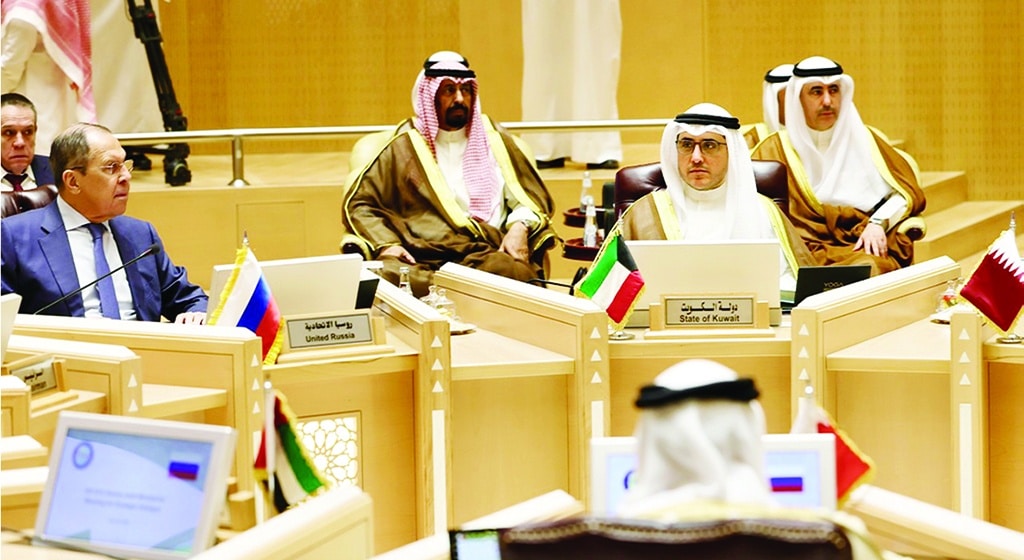RIYADH: The Gulf Cooperation Council (GCC) has threw its weight behind mediation efforts to resolve the Russia-Ukraine conflict, emphasizing that such measures should fall in line with international laws and principles. These efforts should comply with the principle of sovereignty and non-interference in the internal affairs of countries, which encapsulate the GCC's stance towards the Russia-Ukraine conflict, according to a final communique drawn up after Gulf Arab foreign ministerial-level talks in the Saudi capital.
The talks underlined the importance of a ceasefire and subsequent dialogue as part of mediation efforts aiming to carve out a political path out of the conflict, citing the need to get more than 22 million tons of grain still stuck in Ukraine out to world markets, which has triggered a fledgling food crisis. The GCC reiterated its support for referring the issue of missing Kuwaiti prisoners of war (POWs) during the 1990-91 Gulf War to the United Nations Assistance Mission for Iraq (UNAMI), saying it looked forward to more cooperation from Baghdad in order to bring closure to the matter.
On the fight against terrorism, the bloc expressed its utter rejection of all forms of the scourge, saying it backs all regional and international efforts to exterminate terrorist and extremist groups, citing Yemen's Houthi group as a case in point. Addressing Gulf Arab ties with Iran, the GCC said it is committed to established United Nations principles and conventions on international relations, calling on Tehran to change its behavior that often imperils regional stability. On a number of conflict-hit countries around the region, including Yemen, Syria, Libya and Sudan, the ministers agreed that commitments to national interests and maximum restraint are the only solutions to stifle the unrest.
GCC unity
Saudi Arabia Foreign Minister Prince Faisal bin Farhan affirmed on the unity of GCC states and stands towards international issues and crises which has led to the emergence of the council as one of the effective and influential international forces. The remarks by Prince Faisal came in a speech during the GCC 152nd session of the Ministerial Council at the headquarters of the Council's secretariat in Riyadh.
Foreign Minister Sheikh Dr Ahmad Nasser Al-Mohammad Al-Sabah headed the Kuwaiti delegation in the meeting, in the presence of the ministers of the Gulf Cooperation Council countries, and with the participation of GCC Secretary-General Dr Nayef Al-Hajraf. Prince Faisal added, "today we witnessed two fruitful meetings with the foreign ministers of Russia and Ukraine, which reflected our unified position towards the Russian-Ukrainian crisis and its negative repercussions, especially with regard to food security in the affected countries and the world."
Prince Faisal noted, "establishing the foundations of our regional security is one of the most important pillars of our unity, which faces great challenges that require close coordination to reach a common approach towards our international relations to take care of our interests." The Saudi top diplomat asserted in this regard, "Iran's nuclear and ballistic programs, its arming of militias, its support for terrorism, and its destabilizing behavior in the region come at the top of these challenges."
He stressed the need for "our dialogue and communication with Iran to be based on a unified Gulf position, through which we call on it to calm down, cooperate and adhere to the principles of international legitimacy and good neighborhood status so that we can work together to achieve our development plans within a stable regional environment that embraces partnerships and supports economic diversification programs." - KUNA











